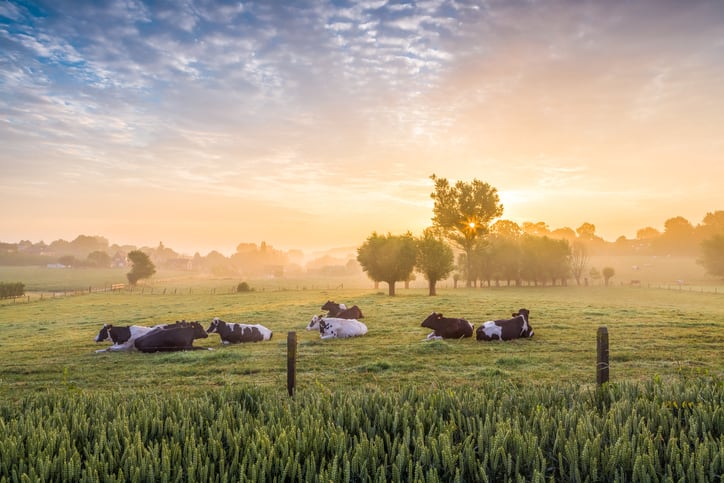The white paper reiterates the UK government’s desire for a partnership with the EU that allows the "freest possible trade in goods."
The UK has good reason to want this: its agrifood exports to EU member states were worth £11 billion (€12.8bn) in 2015, but its food imports amounted to £28 billion - and over 70% of this came from the EU.
"This underlines the UK and EU’s mutual interest in ensuring continued high levels of market access in future,” says the paper. “Leaving the EU offers the UK a significant opportunity to design new, better and more efficient policies for delivering sustainable and productive farming, land management and rural communities. This will enable us to deliver our vision for a world-leading food and farming industry and a cleaner, healthier environment, benefiting people and the economy.”
Another week, another wish list?
But, just like Theresa May’s 12-point list – or should that be her 12-point wishlist? – the white paper is almost void of details on possible food policy, financial analysis, risk assessment or negotiating strategy.
On replacing agencies that have pooled resources, shared information and advised and enforced EU and British regulation for decades, such as the European Food Safety Authority (EFSA), it says: “As part of exit negotiations the government will discuss with the EU and member states our future status and arrangements with regard to these agencies.”
Concerns over the vagueness of the white paper content were not limited to the food industry.
The Financial Times called it a blank paper, while JP Morgan analyst, Malcolm Barr, did not mince his words: “As a distillation of the state of knowledge within the UK government six months after the vote, and with the beginnings of a time-compressed negotiation just weeks away, the shallowness of the analysis and absence of detail are matters of great concern, in our view."
Meanwhile, Twitter commentators were quick to point out the rushed nature of the paper, noting that the online version was created at 4:26 am while one graph in it mistakenly gave British workers a generous 14 weeks of annual holiday.
This lack of detail has left few reassured.
Ben Reynolds, deputy chief executive of Sustain, an organisation which promotes sustainable food and farming, described it as “a statement of intent”.
“Whilst we applaud the ambitions to build a better Britain, the government's white paper doesn't give the reassurance that what will come in the wake of Brexit won't lead to lower standards for consumers, workers and the environment.
“There must be no weakening of rules on environment, pesticides, animal welfare, workers rights or food safety to both protect public health and ecosystems but also to ensure we are able to continue to sell goods in global markets where such standards are expected,” he added.
Vickie Sheriff, director of campaigns and communications at UK consumer rights organisation Which? said it was “deeply concerning” that consumers appeared "almost irrelevant".
Race to the bottom for a level playing field?
Reynolds and Sheriff may be right to express concerns over the possibility of lowered standards.
In a recent interview on BBC radio, chief economist at the American Farm Bureau Federation, Bob Young, said Brexit was an opportunity for the US to start selling agri-food products in Britain that are currently blocked by the EU’s stricter phyto-sanitary and safety standards - products such as beef from cattle fed on growth hormones or chickens washed in chlorine. Practices such as these were a major stumbling block in bilateral negotiations between the US and EU for the currently on-hold Transatlantic Trade and Investment Partnership (TTIP).

Young said overcoming these trade barriers was “strong on our agenda” for meat products in particular.
In response to Young, director of strategy at Britain’s National Farmers’ Union (NFU), Martin Haworth, seemed to suggest the NFU’s priority would not necessarily be in keeping the EU standards in a post-Brexit Britain.
“This has been to a World Trade Organisation (WTO) panel and they determined that used in the correct way and with the right hormones, they are safe. Now that’s not to say that we would want to use but them but the science is there.
“But if we are going to be required to import products using [these techniques], yes, we would demand to be on a level playing field on that question."
NFU director of EU Exit and international trade Nick Von Westenholz told FoodNavigator: “We believe a fundamental principle of future trade negotiations should be to ensure a level playing field for British farmers in order for them to be competitive, profitable and productive in the future.”
“… We do not believe the British public would want our own farmers to be put at a competitive disadvantage by allowing the import of food produced to different standards and using methods which are not allowed in Britain.”
Von Westenholz added: “The success of the government’s Brexit negotiations will be judged on the impact on British farmers. As the sector most heavily impacted by the referendum outcome, if the government can make British farming a success post-Brexit, then it will be the clearest indication that the country can succeed outside Europe.”
FDF director, Ian Wright, said it was premature to comment in detail on any post-Brexit trade deal, but that industry's top priority was to maintain high standards of quality, safety and supply in order to maintain consumer confidence.
